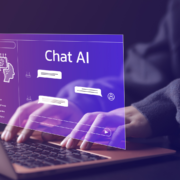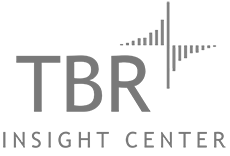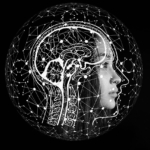Informatica Unveils ‘ChatGPT for Enterprise Data’ Amid GenAI Boom
Disruptive technology is anything but stagnant. From the hyperscalers pushing the parameters of their latest large language models (LLMs) to other firms trying to provide their own models in an arguable race to the bottom, the lines of the generative AI (GenAI) stack are blurring.
In many ways, this activity is good, elevating innovation, competition and the role of the partner ecosystem, which will increasingly define how cloud vendors go to market in years to come. But at the same time, it is fueling the proliferation of unstructured data and adding to the already complex and redundant IT estate with yet another LLM, another vector database, and more third-party AI orchestration and integration tools.
Informatica is on a mission to break through this added complexity, honing the metadata system of record that defines Informatica Data Management Cloud (IDMC) to account for the latest models, databases and integrations that must play friendly with customers’ existing applications.
Of course, the challenge remains getting customers to think about data ahead of GenAI amid all the hype. At TBR, we often talk about how GenAI models are only as good as the amount and quality of data that are fed into them. Garbage-in, garbage-out should be self-explanatory when it comes to data’s role in LLMs and GenAI, and yet effective data management is still often overlooked or deployed too late within the enterprise.
Corporate culture, executive pushback and integrating point solutions remain among the top obstacles, and according to TBR’s 2H23 Cloud Infrastructure & Platforms Customer Research, 35% of respondents are taking a best-of-breed approach to data management, resulting in fractured data silos. That is why the Informatica World 2024 opening keynote theme — “Everybody’s ready for AI except your data” — rang true and speaks to an opportunity for Informatica, and increasingly its consulting partners, to address as customers try to navigate GenAI’s complexities and ultimately take advantage of GenAI’s opportunities.
TBR’s Leading Analysts Discuss Use Cases, Risk and Governance, Commercial Strategies, and Resource Management for Cloud and Software Applications in GenAI: Watch the Full Video Below Now
“CLAIRE GPT is the Chat GPT for Enterprise Data”
IDMC is the culmination of a five-year, $1 billion R&D investment, and executives have clearly articulated the pace of innovation will only accelerate with a meticulous focus on improving the native functionality in each of IDMC’s seven core modules.
At the event, product leaders for each of these components (e.g., Data Governance, Integration PaaS [iPaaS], MDM [Master Data Management] & 360 Apps) got on stage to showcase their innovations over the past year. They discussed not only core innovation, which could be anything from improving the user experience to adding new prebuilt connectors and extensions, but also a set of innovations specific to CLAIRE — for example, an automated assessment of metadata in MDM.
All these new added capabilities highlight Informatica’s goal of infusing GenAI into every component of the IDMC platform. Perhaps the best example of this strategy, though, is CLARIE GPT, which was first announced at last year’s Informatica World conference and is now generally available. The year 2023 was largely one of execution, as Informatica worked to put the AI engine, trained on vast amounts of intelligent metadata already sitting in CLAIRE, through preview, solicit customer feedback, and prepare for its release to the general public with a fresh message: “CLAIRE GPT is the ChatGPT for enterprise data.”
To see this message in action, we were given a hypothetical scenario in which a marketing operations analyst tasked with retaining disengaged customers uses natural language prompts in CLAIRE to find the right data sets and ask questions about that data. For example, the analyst can ask CLAIRE GPT to list data sets for marketing campaign analysis, and CLAIRE will pull the appropriate data, including those sitting in multiple systems like data warehouses and BI tools.
But Informatica actually delivering capabilities like CLAIRE GPT with IDMC for customers’ GenAI projects is only one piece of the puzzle. Informatica is also using GenAI to improve the underlying platform capabilities and deliver a unified natural language experience in IDMC. In a move that is now table stakes among SaaS, PaaS and IaaS vendors, Informatica is creating its own Copilot — CLAIRE Copilot — to auto classify and enrich master data.
IDMC Modernization Initiatives Well Under Way
Aside from offering new IDMC capabilities and releasing CLAIRE GPT, 2023 was a major year for modernization, which was a big theme at this year’s event. With license revenue down 68% year-to-year in 2023 and cloud subscription revenue up roughly 40% over the same period, Informatica is executing on its strategy of ceasing new license sales and enhancing programs to help customers move to IDMC in the cloud. This includes strengthening the existing modernization packages for legacy PowerCenter, MDM and Governance workloads with fresh automated tooling, including CLAIRE Copilot for PowerCenter (available in 2H24); increasing partner certifications; and growing these programs within larger accounts.
One of the more compelling customer modernization success stories from the event was Takeda Pharmaceuticals, which in the span of 18 months was able to consolidate the 12 data centers still running PowerCenter down to three.
Chief Data Officer Barbara Latulippe told a story of how Takeda wanted to become GenAI ready but recognized that modernization was the initial step and that migrating the low-risk and simple applications first was the recipe for success. The second phase for Takeda was consolidating 6 different MDM environments into one, which ultimately paved the way for the company to adopt other IDMC capabilities, including the Informatica Cloud Data Marketplace, on which the company is now live today. As was the case with Takeda, customers that go through the modernization process will ultimately ask how GenAI can be used to create value.
We expect data marketplaces to play an increasingly important role here; if a customer needs to automate a certain business process and thus locate the right LLM for that process, as well as the right data to contextualize said LLM, one-click experiences will go a long way, further democratizing GenAI and making it fairly seamless for customers to turn a regular application or process into one that is GenAI-enabled.
Informatica’s Relationships With All Hyperscalers Are Maturing, but Work with Microsoft Fabric Is a Big Win for Both Companies
For any cloud platform company, integrating with all the major hyperscalers is no longer a unique strategy but a prerequisite. As we continue to follow Informatica, however, there are some strategic ecosystem moves the company is making in both its product and go-to-market strategies to reach new customers and protect its positioning as the most neutral data management provider.
One key example is Informatica’s fast-growing relationship with Oracle, which Informatica formerly recognized as a hyperscaler partner two years ago. While other platform companies are closely aligned with Amazon Web Services (AWS), Azure and Google Cloud Platform (GCP), many have yet to account for OCI (Oracle Cloud Infrastructure), which could be due to a lack of maturity, including how Oracle cosells with ISVs in the cloud.
But as a key member of the legacy Oracle Database ecosystem for some time, Informatica has been able to quickly elevate its relationship with Oracle around OCI and now serves thousands of Oracle customers in North America alone. Informatica recently made Data Governance & Catalog available natively on OCI — ahead of GCP, which will support this capability later this year — and is expanding to more OCI regions.
But the most transformative ecosystem development highlighted at the event was Informatica’s work with Microsoft, specifically how it is filling whitespace within Fabric, Microsoft’s own answer to data management in its broader pursuit of GenAI dominance. Specifically, Informatica is coming in with its Cloud Data Quality solution native to Fabric, which means that as customers ingest data into Microsoft Fabric’s OneLake repository, Informatica ensures the data can be automatically profiled and assessed in real time.
Unlike many other partners that are joining Microsoft’s partner program as ISVs building and selling applications on top of Fabric, Informatica has signed on as a design partner, an exclusive invite-only track that allows partners to create entirely new workloads consumed natively within the Fabric solution. This distinction is important, as it essentially embeds Informatica’s Data Quality tooling directly within the customers’ analytics workflow and ensures Informatica can offer Microsoft’s roughly 11,000 Fabric customers access to IDMC in the back end and increase the likelihood they explore other aspects of Informatica’s platform.
Though Fabric is touted as an end-to-end SaaS solution serving the entire data life cycle, Microsoft understands its gaps and recognizes the trust customers place in Informatica when it comes to data integration, quality and governance. Letting Informatica fill whitespace around Fabric, an integrated platform that is underpinned by a data lake architecture, is a strategic move for Microsoft and should be noted by Azure competitors that similarly partner with Informatica but in some ways lack Microsoft’s platform mentality; to us, the Fabric-Informatica integrations only reinforce how aligned Azure and Informatica are as two platform-centric companies understanding the symbiotic relationship between data and GenAI.
Final Take
In many ways 2023 was an execution year for Informatica. Since last year’s event, when Informatica showcased CLAIRE GPT, the company has been adamantly focused on bringing the GenAI engine into general availability, all the while delivering a broader and deeper set of AI-rich features natively within IDMC.
Meanwhile, with momentum for PowerCenter migrations, which in 1Q24 accounted for 80% of all Informatica’s modernization deals, and early success of the MDM program, modernization has been a key initiative for the company, driving cross-selling opportunities and pushing Informatica closer to the $1 billion cloud annualized recurring revenue mark.
Rallying a cohesive ecosystem — made up of hyperscaler and global systems integration partners that are expanding their certifications as part of these modernization programs — around IDMC will remain key to Informatica’s success, ultimately allowing the company to cross-sell more services and ensure IDMC becomes the de facto way customers get their data ready for GenAI.

 Supatman via Canva Pro
Supatman via Canva Pro
 Blue Planet Studio via Canva Pro
Blue Planet Studio via Canva Pro